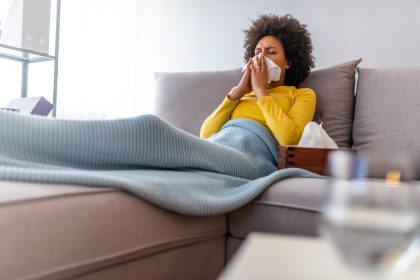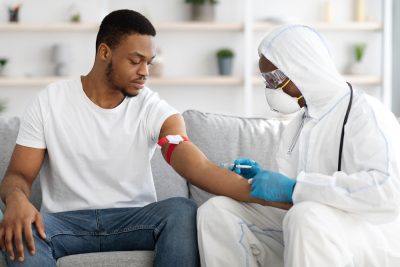
Researchers are working around the clock to learn more about COVID-19 while attempting to share information in real-time. Rolling out sat down with Calethia Hodges, CEO of Infinite Clinical Trials, to get some real answers about the novel coronavirus compared to the flu. We also asked Hodges to clear up speculation about blood type having an impact on the severity of the virus.
The closest thing we can compare this to is the flu vaccine and many people become sick when they get the flu shot, while others don’t. What’s the scientific reason behind this and could we experience the same inconsistency with the COVID vaccine?
The flu vaccine and the COVID-19 vaccine are not a 1:1 comparison. For instance, the flu is different because it mutates and returns every year. We don’t know yet if this will happen with COVID-19.
The reason we get the flu shot every year is to protect against each new strain of the flu. However, some people think that the flu vaccine can give you the flu. It can’t. When you get the flu vaccine, you’re injected with either dead flu viruses or a single gene from the flu, not the whole thing. Neither can actually give you the flu. But you can get the flu shot and still get the flu. Flu shots are not 100 percent effective. If you do get the flu after getting the flu shot, though, chances are the symptoms will be significantly less severe.
Similarly, childhood vaccines are not 100 percent effective — usually somewhere between 90-99 percent. We don’t know what the effectiveness of the coronavirus vaccine will be as of yet. That’s why clinical trials are so important. Like all vaccines, they won’t be 100 percent effective, but they could be close and they could lessen the symptoms for people who do get it after getting the vaccine.
We’ve heard that different blood types may experience COVID-19 differently. Do you know if there is any truth to this?
A study out of China sparked this whole conversation. Do certain blood types put you at risk of getting COVID-19? The study, which covered over 2,000 people admitted [to] hospitals in Wuhan, found that people with type A blood were much more likely to be hospitalized with the novel coronavirus than people with type O blood. It also found that type O blood even had a lower probability of getting the virus in the first place.
It’s interesting, sure, but keep in mind this is a very preliminary study. It has not been peer-reviewed and it’s merely showing correlation, not causation. This is not a time for type A’s to panic and type O’s to let their guard down. In fact, there’s a chance it might just be a complete coincidence. We need to do more research to determine if this is even a possibility.

















